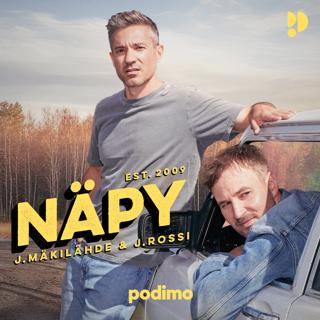
I Didn’t Want to Have Kids. My Husband Did. Could Our Marriage Survive?
When Helena de Groot was a child, she pictured an exciting future for herself: living in a big city, getting an apartment with lots of plants, having a creative job and going dancing on the weekends. ...
25 Helmi 53min

What Happened When My Dad and I Came Out to Each Other
Julia Stoller loved her dad. But she never wanted to be him. He was a rule follower, he was so serious, and he was so straight. Then, when Julia was in her 20s, she got a phone call that completely ch...
18 Helmi 37min

The Secret to True Romance
Recently, the “Modern Love” team asked you to share stories about the most romantic things that have ever happened to you. What struck us about your stories was how frequently romance was found in qui...
11 Helmi 39min

The Real Story Behind Jennette McCurdy’s Novel “Half His Age.”
Please note: this episode contains explicit descriptions of sex.Jennette McCurdy pretty much grew up in front of an audience. In her role on the Nickelodeon show “iCarly,” she seemed like a bubbly, ha...
4 Helmi 43min

I Was the Fun Dad. It Almost Destroyed My Marriage.
When Jordan Carlos looks back on the role he was playing in his family a few years ago, he does not like what he sees. He was bringing home a good salary as a comedian, but doing only the bare minimum...
28 Tammi 43min

I Tried to Toughen Up My Son. He Had Other Ideas.
Sam Graham-Felsen was not a tough child. He feared violence and didn’t feel that he could stand up for himself when he was bullied. His fear ate away at his confidence; he was afraid to go on dates, a...
21 Tammi 56min

Was I Married To A Stranger?
Belle Burden was living the kind of life most can only dream of. Born into a wealthy New York family, she married a dashing attorney who had swept her off her feet. The couple had a beautiful apartmen...
14 Tammi 55min

Want to have better sex this year? Here’s how.
Do you think you could be having better sex? Are you confident you know what really turns you on? What makes your body feel good? How do you communicate about it? Nicole McNichols wants everyone to be...
7 Tammi 41min






















